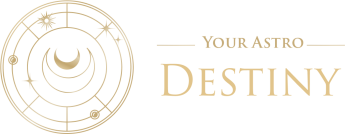Astrology presents a unique approach to understanding human nature and our place within the universe. In its purest form, it reveals the multiple facets of psychological depth, giving attention to the concrete aspects and societal implications present within each individual. At the heart of the astrological concept is the idea of archetypes, around which the theory of archetypal astrology revolves.
Archetypes in Astrology
To grasp the concept of archetypal astrology, one must firstly comprehend the term ‘archetype’. Stemming from Jungian psychology, archetypes are universal images, patterns or themes that mankind continuously encounters in dreams, myths, and narratives across diverse cultures. These archetypes are innate and invariable; however, their particular manifestations and experiences may vary widely.
In the context of astrology, these archetypes signify the twelve zodiac signs, each sign symbolising a different aspect of human personality and experience. From the adventurous spirit of Aries to the practical-minded Capricorn, these symbolic representations breathe life into the pillars of astrology.
Archetypal Astrology and Free Will
The role of archetypal astrology is not to predict specifics but rather to illuminate the patterns unfolding within the individual and collective psyche. The fundamental principle behind this is that while the planetary archetypes align with specific themes and potentials, they do not determine them. The power of free will allows each individual to engage with these archetypal energies in distinct and unique ways.
The interaction between archetypal forces and free will offers an insightful understanding of human experience. One should consider archetypes as cosmic weather, and free will as the way we choose to engage with that weather. We don’t have control over the weather, yet we do decide how and when to react or adapt to it. Similarly, archetypes present circumstances or experiences, while human free will determines the response or action to these elements.
Archetypal astrology, in this sense, is a tool for identifying these cosmic patterns and recognizing how they are unfolding in one’s life, thus enabling individuals to make choices more consciously and in alignment with personal and collective growth.
Planetary Archetypes
Each planet in astrology symbolises different archetypal forces. For instance, Mars is associated with the Warrior archetype, signifying themes of courage and conflict, while Venus aligns with the Lover archetype, suggesting themes of harmony and aesthetic pleasure. The way these archetypes interact with each other within an individual’s chart provides profound insights into the person’s psyche and life experiences. The positions of the planets at one’s birth are believed to play a significant role in shaping the various facets of the individual’s life.
Through archetypal astrology, we discern that the cosmos does set a baseline for human experiences. Still, through free will, the individual has countless pathways to experience these cosmic forces. Hence, archetypal astrology is not deterministic but rather expressive, reflecting potentials that can be embraced or resisted.
In conclusion, archetypal astrology offers a profound language to understand the human psyche’s complexities and the myriad ways we engage with the cosmos. It recognizes the interaction of cosmic forces and human choices, creating a dynamic, malleable narrative of the human experience. From this perspective, astrology emerges not only as a tool for self-understanding but also as a means towards conscious, meaningful living.














